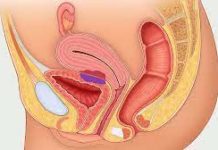A nosebleed may be frightening, especially if it occurs in your child. While nosebleeds might occur out of nowhere, the majority of them aren’t significant and can typically be treated at home. Several blood arteries run along the surface of your nose, and even the tiniest injury or irritation can cause bleeding. Children and adults both have nosebleeds, but some are more serious than others, necessitating a visit to the doctor. Here’s a look at some of the most frequent causes of nosebleeds, as well as some tips on how to treat them at home and when to see a doctor.
When may nosebleeds be a cause for concern?
Most parents and kids will have a nosebleed at some point in their life. After a few minutes of self-care, the bleeding will usually cease. Symptoms of nosebleeds, on the other hand, may necessitate a phone call or a trip to the doctor.
When should a kid see a doctor?
A nosebleed in your child is understandably frightening. However, keep in mind that nosebleeds are rather frequent among youngsters. This isn’t to say that you should disregard every nosebleed.
You’ll see blood dropping or flowing from your child’s nose if he or she has a mild nosebleed. It’s possible that they’ll bleed from one or both nostrils. The bleeding can be stopped with immediate home care.
However, you should consult a doctor if any of the following apply:
- The nosebleed does not cease after 20 minutes of direct pressure, particularly if your kid has a head or facial injury. Serious damage to the nose or skull are possible.
- A foreign item has been lodged in your child’s nostril.
- Other symptoms your kid is experiencing include dizziness, headaches, exhaustion, vomiting, and difficulty breathing. This might mean they’ve lost a lot of blood or have blood pouring down their mouth.
When to contact a doctor for adults
- Even if you’re used to suffering nosebleeds as an adult, some signs should not be overlooked.
- If a nosebleed does not cease after 20 minutes of direct pressure or if you lose a lot of blood, call your doctor (more than a cup).
- If you have problems breathing, choking, or vomiting owing to blood pouring down your throat, you should see your doctor.
- A nosebleed caused by a significant injury to your head or face requires medical treatment as well.
- Internal bleeding, blood clotting issues, or blood vessel diseases may be indicated if you’re bleeding from other regions of your body, such as your ears or rectum.
Adults and children should see a doctor if they have frequent nosebleeds, even if they are small. This might signal a long-term issue with the nose, such as nasal polyps or growths.
- What are the most common causes of nosebleeds?
- If you or your child develops a nosebleed, don’t be alarmed. Minor bleeding can be caused by a variety of factors. Consider the following scenario:
- smelling the nose
- nose damage that is minimal
- Allergies, sinusitis, and the common cold
- air that is dry
- blowing your nose excessively
- nasal decongestant sprays are used excessively.
- high elevations
- irritation caused by chemicals
- drugs that thin the blood
- septum deviated
- stress
- pregnancy
What is the most effective treatment for common nosebleeds?
Here are some self-care suggestions for treating nosebleeds in adults and children:
- Keep your balance. Sitting up straight allows blood to escape from your nose and avoids it spilling down your mouth. Vomiting and nausea might result from blood pouring down your throat.
- Make use of cold treatment. Applying a cold compress to the bridge of your nose will assist constrict your blood vessels and halt the bleeding.
- Once, softly blow your nose. This aids in the removal of any blood clots that may have formed in your nostrils.
- 5 minutes of pinching your nose Squeeze the soft part of your nose gently for at least 5 minutes without releasing . The blood flow in your nose might be stopped if the pressure on your nasal septum is too high. Repeat for up to 15 minutes if required.
- Using a moist washcloth, clean the area. Do not stuff gauze or tissue into your or your child’s nostrils. Instead, place a moist towel over your nose to aid in the absorption of blood.
What is the most effective strategy to avoid nosebleeds?
Here are a few methods to help you or your kid reduce the frequency of nosebleeds caused by sinusitis, allergies, or other recognised diseases:
- To keep your nasal canal wet, use saline nose drops as indicated.
- When allergies or the common cold induce a nosebleed, use a humidifier.
- Make sure you don’t blow your nose too forcefully.
- Make an effort to stop smoking (smoking can dry and irritate your nasal passage).
- Fingernails should be trimmed and nose picking should be avoided.
- When participating in particular sports, use protective facial protection.
- When sneezing, open your mouth to avoid damaging your blood vessels in your nose.




